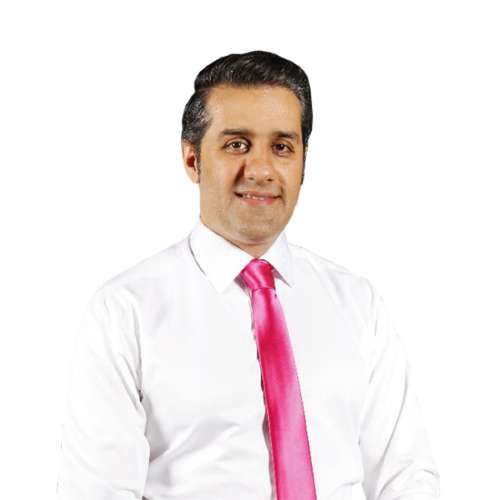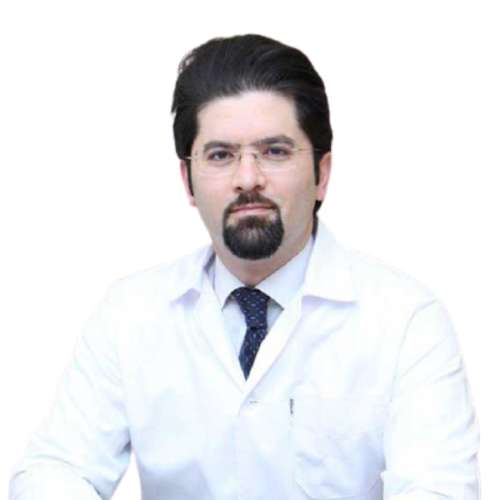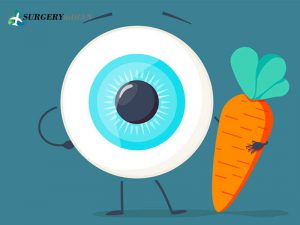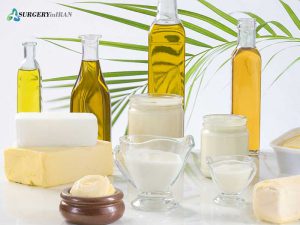Nutrition after eye surgeries
Do’s and Don’ts of Eye Surgery
We know that after each surgery, it is necessary to follow a series of points so that the person can recover completely as soon as possible. One of the most common outpatient surgeries these days is eye surgery, which includes cataract surgery, LASIK surgery, etc. In eye surgeries, because the incision site is very small and a few millimeters, and due to the high rate of cell proliferation and the humidity of the site, the speed of repair is very high and doctors believe that the role of nutrition in recovery is less than other surgeries. . And doctors usually use the same diets in all surgeries. Here are some useful nutrients that may be useful in the recovery period after eye surgery.
proteins
Proteins, because they contain a series of amino acids, heal wounds faster, but because many of these amino acids cannot be made by the body, they must be included in the daily diet. Foods such as eggs, low-fat dairy products, and legumes, especially legumes that are darker, and a variety of meats, especially chicken and fish, as well as protein powders that can be prepared from pharmacies and tasted with water or juice, are recommended.
Fiber
Because a person’s activity is severely reduced during recovery and the digestive system slows down, to prevent constipation and dryness, the patient should use fiber-rich foods because constipation during this period may cause pressure on the eyes and tear. Stitches and bleeding and poses a serious risk to the patient. A plate full of vegetables and broccoli, legumes and cereals, and some fruits such as apples and strawberries are recommended after surgery.
Vitamin C.
Other doctors advise patients to eat foods and fruits rich in vitamin C, such as oranges, kiwis, kale, and peppers, because this vitamin accelerates the wound healing process and strengthens the immune system. If you do not have access to these materials, you can also use supplemental and effervescent tablets.
Omega 3
Omega-3 is a very useful substance for regulating and regulating eye pressure and prevents it from being dry. These substances are recommended.
Vitamin D.
During the recovery period of eye surgeries, vitamin D should not be neglected, which slightly cures the pain, and because vitamin D is a fat-soluble vitamin, it is found in a limited number of foods such as salmon, sardines, and tuna, and should be prescribed. Doctor use supplement pills.
Vitamin A.
This vitamin, which is abundant in vegetables such as potatoes, carrots, pumpkin and bell peppers, cantaloupe, and eggs, plays a very key role in eye health. This vitamin strengthens eyesight and eliminates many eye disorders after surgery. Can be useful. Carrots, pumpkins, and other colored fruits contain a substance called beta-carotene, which is converted to vitamin A in the liver. The deficiency of this vitamin in the body reduces night vision and sometimes night blindness.
carbohydrates
These substances, which include grains and legumes, are rich in nutrients and support the immune system, and are usually recommended to maintain the general health of the patient after surgery. Legumes also contain zinc, which protects our eyes from dangerous and harmful light. they do. It is better to use them to prevent bloating and constipation and obesity as needed.
Fats
Some fats are very harmful to human health, but there are also beneficial fats that should not be removed from the diet, such as fish fats, nuts, avocados, and olive and sesame oils. Eating these substances after surgery can greatly reduce inflammation.
Water
Because during eye surgery, some nerves related to the lacrimal glands (about 70%) are cut off and the secretion process is disrupted, and it takes time for them to try to repair themselves again and restore their health, and this may cause dry eyes and reduce pain and vision loss, it is strongly recommended to consume plenty of water in about 8 glasses during the day. In addition to water, eating plenty of garlic and onions is recommended to maintain eye moisture. Garlic and onions are rich sources of sulfur.
Do’s and Don’ts of Eye Surgery
The patient should use a variety of juices and healthy drinks to minimize side effects.
Patients should try to prepare all their meals before the day of surgery and keep them in the refrigerator so that they do not have any problems after the operation.
During the recovery period, the patient should completely avoid smoking, hookah, and alcoholic beverages so that his recovery process is not disrupted and he refrains from driving for a few days at the surgeon’s discretion.
Use sunglasses or special eyewear to prevent infection and environmental pollution and sunlight.
As we know that stress is the mother of all our diseases and physical problems, the patient should do his best to avoid as much as possible the stress and fear even with the help of a weak sedative.
One of the most important points after eye surgery is the accurate and timely use of medications prescribed by your doctor. Medications that include antibiotic drops to prevent possible infections as well as drops, prevent inflammation and inflammation of the eye and should be poured into the eye by the patient’s caregiver at the exact time and regularly, two or three times a day for a month, observing hygienic tips. Under no circumstances should you rub your eyes with your hands, avoid going to the pool and under the shower directly on your face, and avoid eye makeup. The patient should try to avoid lifting heavy objects as well as exercise so as not to cause any problems.
After a few days of surgery, the patient should see a doctor for re-examination, review, change of dressing, and eye number to receive new instructions from the doctor and, God willing, he can return to normal life as soon as possible. In general, the recovery period Eye surgeries are very short-lived and the pain is usually mild and there is only a slight burning sensation in the surgical area.
And because the eye is one of the most important blessings of God and without it, human daily life is disrupted, so you should consult a specialist as soon as you feel the slightest problem to avoid the many difficulties that may arise later and affect life.



















